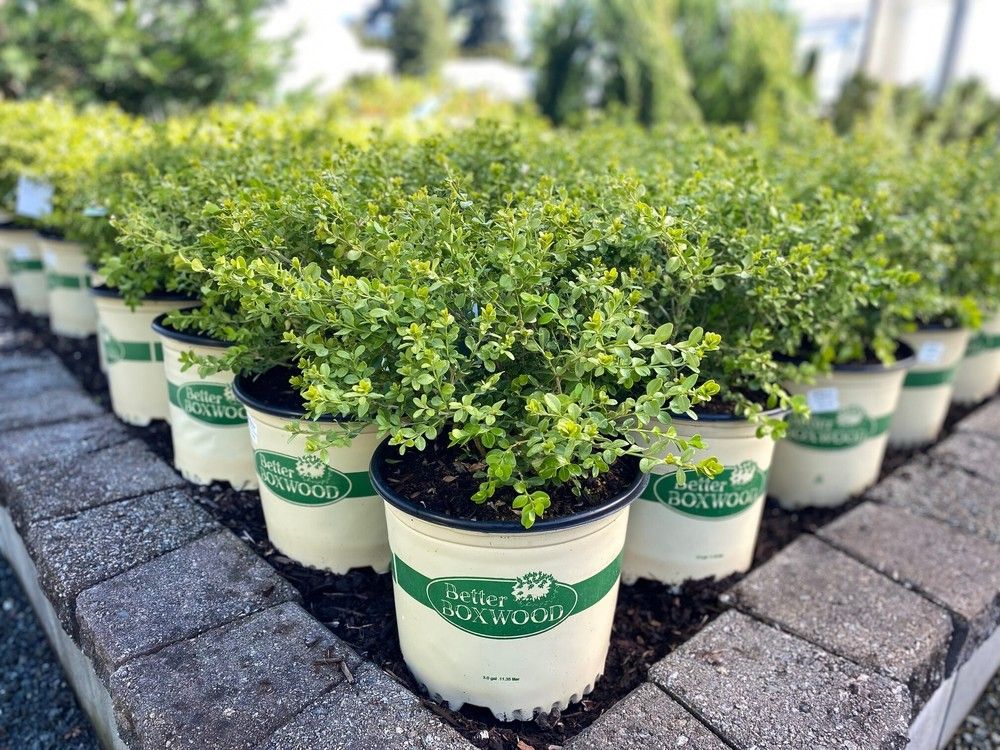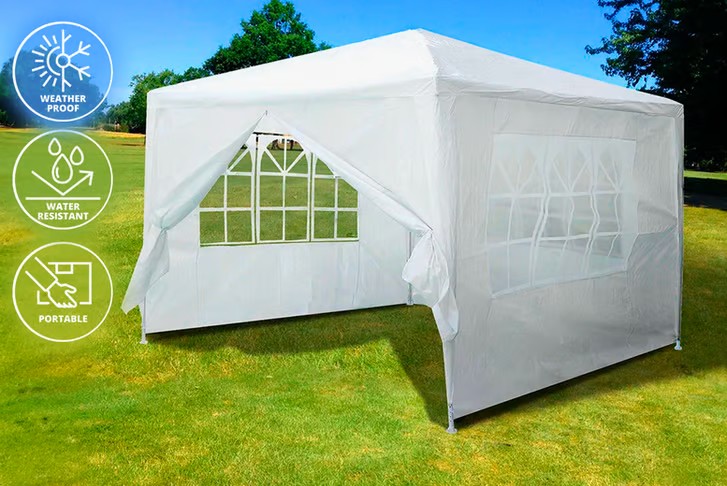In the 1990s, a disease, identified as boxwood blight, began affecting and often destroying boxwood plants in Europe. Both residential and centuries-old collections were casualties. By 2011, this disease had spread to both Canada and the U.
S., causing significant harm to boxwood plantings. Both the Buxus sempervirens and the very low-growing, compact variety, Buxus sempervirens Suffruticosa, were highly vulnerable.

In the late ’90s, a renowned Belgium grower, Didier Hermans, working with the Flemish Institute for Agriculture and Fisheries, began a meticulous breeding process of developing blight resistant varieties. After two decades of scientific research and breeding and trialing a range of blight resistant varieties, a branded series, known as Better Boxwood, was developed and is now available in Canada. There are four different varieties in this new series, each with its own size, shape and unique characteristics.
All of them are also deer- and pest-resistant, making these new boxwoods a much-valued garden plant. Buxus Babylon Beauty is a very compact variety that spreads wider than it grows tall, measuring about three-feet tall by four-feet wide. It’s ideally used as a low hedge or foundation plant to cover unsightly cement exposures, as well as open areas under decks and raised patios.
It’s also a great hardy Zone 5 container plant. Unlike many boxwood varieties, it keeps its evergreen vibrancy all year long, which is especially appreciated during the winter. As a landscape plant, it works beautifully for both formal and informal plantings.
The Buxus Heritage variety has the traditional boxwood look with some of the deepest dark green foliage available. Size-wise, it’s reasonably compact and would work well as a lower-growing hedge. Heritage is a very symmetrical growing variety, making it ideal for shaping as a topiary.
From a narrow pyramid to a stately columnar form, it’s one of the easiest boxwoods to shape. Quite at home in a container, it will also make an excellent patio specimen and will require only a minimum of maintenance. Hardy to Zone 5, this Buxus will suit many locations, growing about four-feet tall, with a spread of 2 1/2 feet.
If you’re looking for a more traditional rounded form, Buxus Renaissance might be your plant. This variety can be contoured into intricate topiaries and stunning parterres. Its compact growth habit and dense, lush appearance means it’s an excellent candidate for use as a specimen plant, by itself in a container, or for a row of hedging that will require far less maintenance than other varieties.
Renaissance holds its deep green colour over the winter far better than traditional varieties. Also hardy to Zone 5, it’s a fantastic new variety, growing about 2 1/2-feet tall and three-feet wide. Skylight is the largest member of the Better Boxwood collection.
Growing up to eight-feet tall and three- to four-feet wide, it makes a stunning columnar specimen. It also grows rather quickly, creating a faster hedge or screen. Where screening on a patio is important, Skylight might be one of your best options.
With its attractive, mid-green colouring, that lightens up nicely when the new spring growth starts, it’s a refreshing variety that fits so many landscape situations. I met the lady representing Better Boxwood at the Farwest Show in Portland last August, and she was thrilled with the response to these new, blight-resistant varieties. One of our local B.
C. wholesale nurseries, that has the rights to distribute Better Boxwoods to retailers, also introduced another blight-resistant variety, called Buxus Little Missy. Found in Georgia in the U.
S., this very compact variety has been available in our area for a few years now and has become a favourite. Growing only about 18-inches high and 24-inches wide, and with vibrant, shiny green leaves, even in winter, it makes a perfect low hedge.
When I asked our local producers for comments about this new blight-resistant variety, they stressed how incredibly clean and vibrant these plants are at all times of the year. This is a huge step forward from many of the older traditional varieties that had dull orange or bronze winter foliage. I think all of these new Better Boxwood varieties are a welcome addition to our boxwood selections and will stop the losses of so many of our beautiful boxwood hedges and plantings.
RelatedThis low-maintenance rosemary variety works well as a divider hedgeBrian Minter: Science World's new outdoor park gets kids (and grown-ups) into the garden.
Food

Brian Minter: Better Boxwood varieties are much-valued garden plants. Here's why

Opinion: Brian Minter explains why the Better Boxwood varieties are much-valued garden plants.














